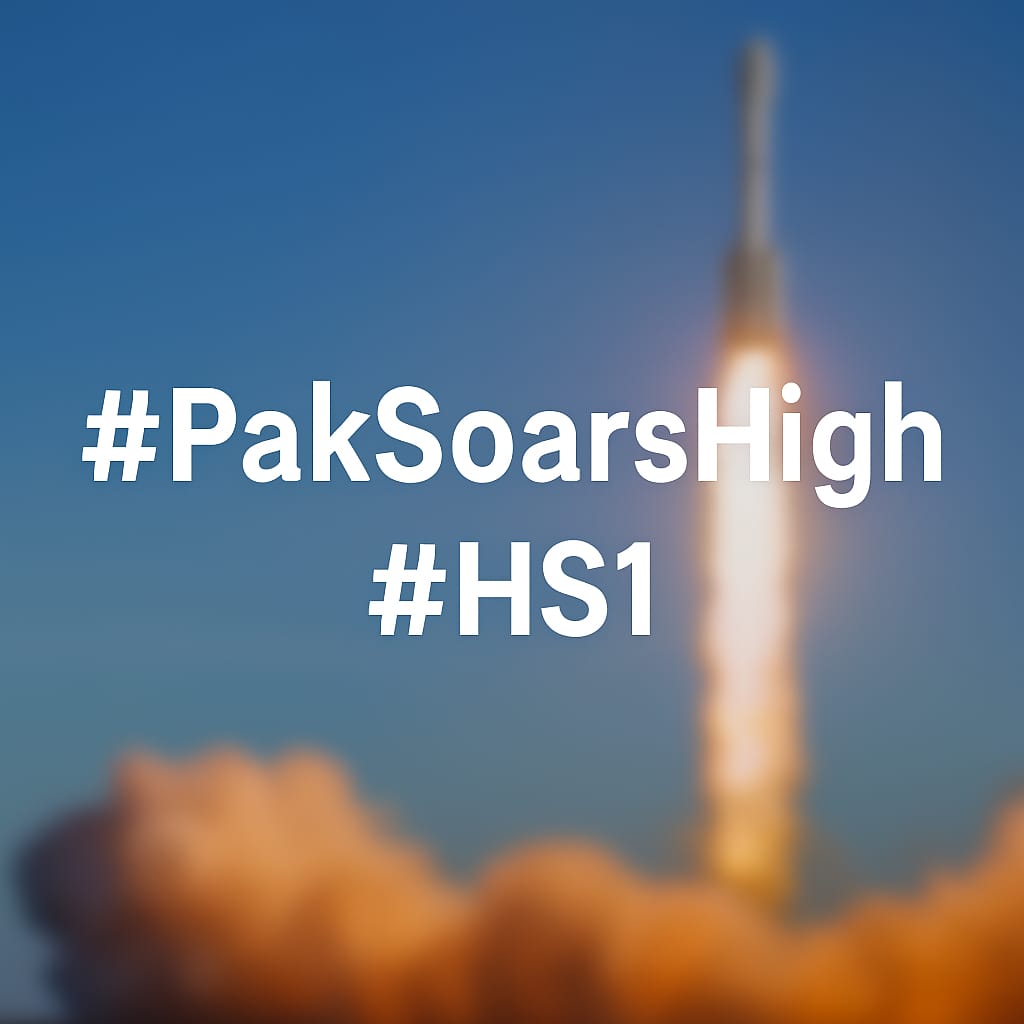55
WNAM REPORT: The Space and Upper Atmosphere Research Commission (SUPARCO) has announced the launch of Pakistan’s first Hyperspectral Satellite (HS-1) from the Jiuquan Satellite Launch Centre (JSLC) in China, scheduled for October 19.
Marking a major leap in the country’s space journey, the HS-1 mission is set to usher Pakistan into a new era of advanced space-based applications in agriculture, disaster management, urban planning, and environmental monitoring.
In the agriculture sector, the satellite’s hyperspectral imaging capabilities will enable precision farming through high-resolution data acquisition and calibration.
By providing detailed insights into crop health, soil moisture, and irrigation patterns, HS-1 is expected to enhance yield estimation by 15–20 percent, contributing significantly to the nation’s food security.
For urban development, HS-1’s state-of-the-art sensors will help monitor environmental changes, map infrastructure, and analyze urban growth trends.
Its ability to capture the spectral signatures of man-made structures will support sustainable city planning, efficient resource management, and informed land-use policies.
In the fields of environmental monitoring and disaster management, the satellite will play a pivotal role in early warning and rapid response mechanisms. Its advanced imaging systems will assist in flood prediction, landslide detection, and geo-hazard assessment—particularly across the Karakoram Highway and northern regions.
The data will also improve post-disaster evaluations, transportation network analysis, and water resource modeling, offering timely insights into floods, earthquakes, deforestation, and land degradation.
The integration of HS-1 into Pakistan’s growing remote sensing fleet, comprising PRSS-1 (launched in July 2018), EO-1 (January 2025), and KS-1 (July 2025), will significantly strengthen the nation’s space-based infrastructure and data capabilities.
The mission aligns with the National Space Policy and SUPARCO’s Vision 2047, which seek to position Pakistan among the leading countries in space technology and innovation, driving sustainable national development through science and innovation.
previous post


